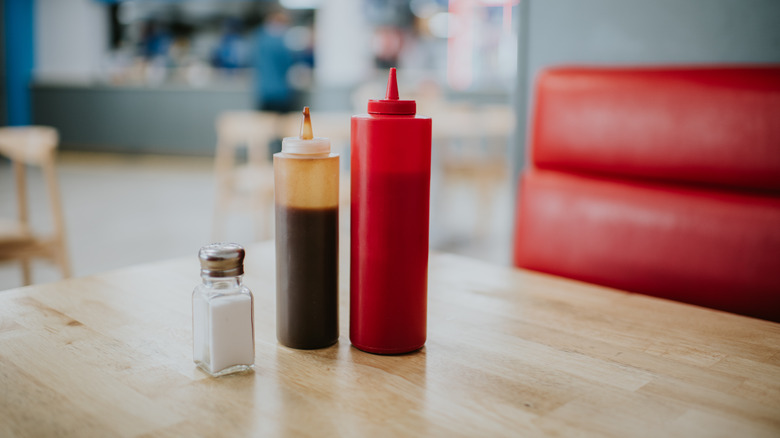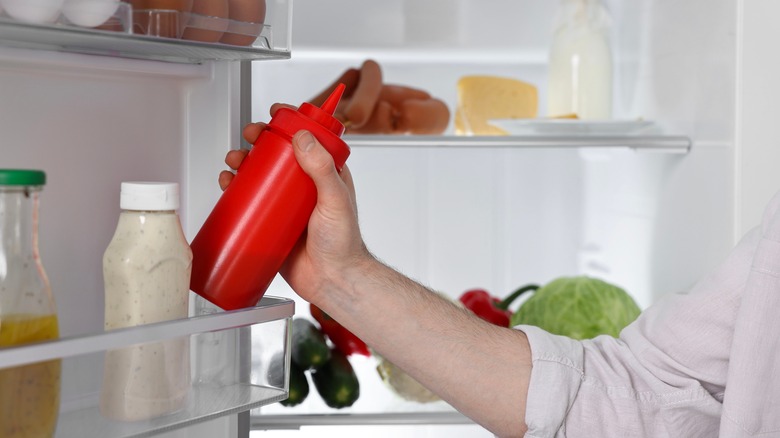Is It Safe To Store Ketchup At Room Temperature?
The bright red bottles of ketchup, otherwise known as catsup, sitting on the tabletops of restaurants are convenient to grab and squirt, but are we sure they're really safe to use? Generally, the answer is yes. But before you leave a bottle of Heinz out on your kitchen table at home, know that there is an important caveat.
While acidic ingredients like vinegar and tomatoes help keep ketchup fresh, they can only do so for a short period of time. This is because once a bottle's seal is broken, the ketchup is exposed to the air, which can make the sauce lose its rich tomato flavor faster. When left out, an open bottle of ketchup has a shelf life of one month. For most busy restaurants and diners, that's plenty of time for hungry patrons to use and discard a full container of the condiment, so leaving it on the table is a no-brainer. When it comes to home use, however, a month might not be enough time, so ketchup is best stored a little differently in this scenario. If ketchup is kept in the refrigerator, which slows its spoilage, the condiment's lifespan extends to about six months.
In addition, if you make your own ketchup, you should always keep it in the fridge as it won't have the same preservatives as most store-bought bottles. The same is true for other ketchups made with minimal ingredients, so always read the catsup label before choosing how best to store it.
Which ketchup storage method is the best?
If you'd like to hold onto your bottle of ketchup for a while for future picnics and barbecues, you might want to keep it behind closed doors where it's cold. But if you're a diehard fan of catsup, a condiment with a surprisingly long history, you can probably get away with table storage instead. The choice is up to you. Whether or not the bottle's seal is broken may sway your decision, though. Unopened ketchup is best left to live in the pantry, where it can stay good for up to a year. For all opened bottles, however, most commercial ketchup brands, such as Heinz, recommend opting for fridge storage as this helps to best preserve the bright flavor and familiar consistency of ketchup. So, while room temperature storage is safe, it's typically not the most ideal storage method.
If you spot any mold or funky smells coming from the bottle of ketchup, then it's due time for the sauce to hit the bin, unfortunately. Old ketchup ferments over time, so you're sure to smell the unsavory changes taking place. Now, if you've got any more pressing questions about this fan-favorite fry topping, here's everything else you ever wanted to know about ketchup but were too afraid to ask.

